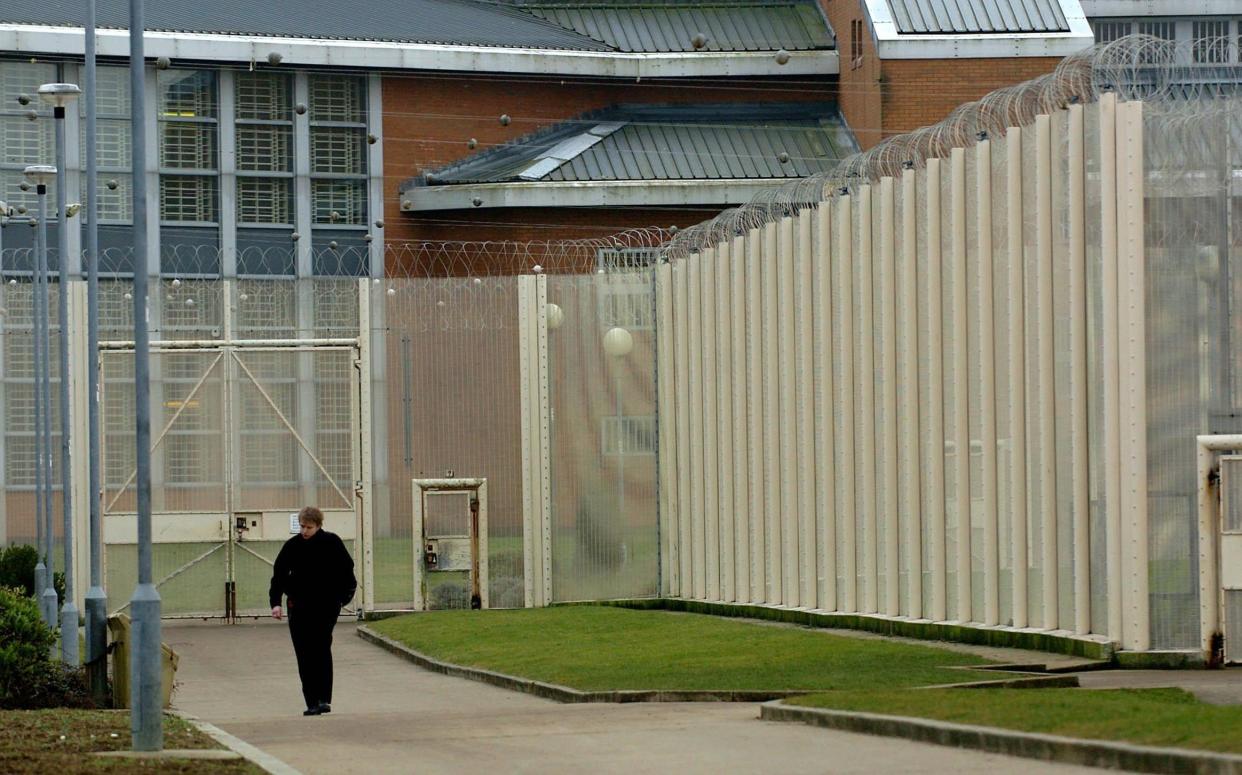Prisoners refuse to leave cells at high security jail over safety fears

Prisoners at a “dangerous” high security jail housing notorious criminals including Charles Bronson are refusing to leave their cells because they are so scared for their safety, a watchdog has warned.
HMP Woodhill in Milton Keynes, which holds some of the most dangerous prisoners in the UK, has the highest rate of serious assaults against staff of any jail in England and Wales, according to Charlie Taylor, HM chief inspector of prisons. Many prison officers said they also feared for their safety.
In a letter to Alex Chalk, the Justice Secretary, Mr Taylor said he was issuing an “urgent notification” - which means emergency measures are needed - because of the jail’s failure to get a grip on the violence which had left up to 71 per cent of its prisoners feeling “unsafe.”
At least 26 prisoners were self-isolating in their cells in fear of their safety, according to the letter. It followed a 50 per cent rise in violent incidents to 298 involving 124 individuals in the past 12 months from 182 in the previous year. Mr Taylor said the prison’s response had been “inadequate”.
High-profile terrorists housed at prison
HMP Woodhill is one of only eight prisons in the country suitable for holding men in Category A, who are seen as posing the greatest risk to the public or of escape.
Bronson’s original seven-year sentence for armed robbery in 1974 has been extended multiple times because of his violent attacks on prison staff and fellow inmates, including 11 hostage-taking incidents in nine different sieges. His parole attempt earlier this year was rejected.
The prison also housed some of the highest profile terrorists including Hashem Abedi, the Manchester Arena bomb plotter, fusilier Lee Rigby’s killer Michael Adebolajor, and London Bridge attacker Usman Khan. The special unit, known as a jail within a jail, was mothballed last year because of staff shortages.
In his letter, Mr Taylor said illicit drug use was a serious problem with positive drug tests running at 38 per cent, the sixth highest of all jails. Emergency cell call bells often went unanswered for long periods of time.
The many relatively inexperienced staff lacked the confidence to challenge poor behaviour. Bullying and intimidation by prisoners was rife, said Mr Taylor.
He pinpointed chronic staff shortages as the crux of the prison’s difficulties. Only half of its front-line officers were available for duty and there was a 36 per cent shortfall even when officers had been transferred on “detached duty” from other prisons in order to plug gaps. More officers were leaving than joining.
‘Woodhill cannot operate effectively with chronic staff shortages’
Mr Taylor also said the physical fabric of the jail was rundown and neglected. Communal areas were dirty and in some parts filthy. Most wing showers lacked privacy, while refurbishment was stalled. Maintenance teams struggled to fix often damaged cells.
He added that prisoners spent “too long” in cells, with work and education routinely cancelled, with the result that only a third said their prison time had made them less likely to reoffend.
“Woodhill is a complex, high-risk prison, holding prisoners convicted of serious offences; it simply cannot operate effectively with such chronic staff shortages,” said Mr Taylor.
“It should be of considerable concern to us all that only a third of the prisoners at Woodhill said that their experience would make them less likely to reoffend in the future, a far lower proportion than at similar prisons.
“As I have repeatedly warned, simply warehousing prisoners and failing to get them into work and/or education does little to protect the public when these men are ultimately released.”
The Prison Governors’ Association said: “We are in a perilous position now, where the levers needed to relieve the stress facing Woodhill and many other prisons are not available. There is a chronic shortage staff across the estate.
“The PGA once again call on Government to reduce the prison population as a matter of urgency.”
Prisons Minister Damian Hinds said: “The findings of this report demonstrate the urgent need for improvement at HMP Woodhill and we will be working closely and quickly with the prison to set out how it can address these issues.”
“The Prison Service is working hard to recruit and retain staff – including boosting starting salaries for prison officers to more than £30,000 and increasing the workforce by over 4,000 officers since 2017, and 5,000 more will be recruited across the estate over the coming years.”

